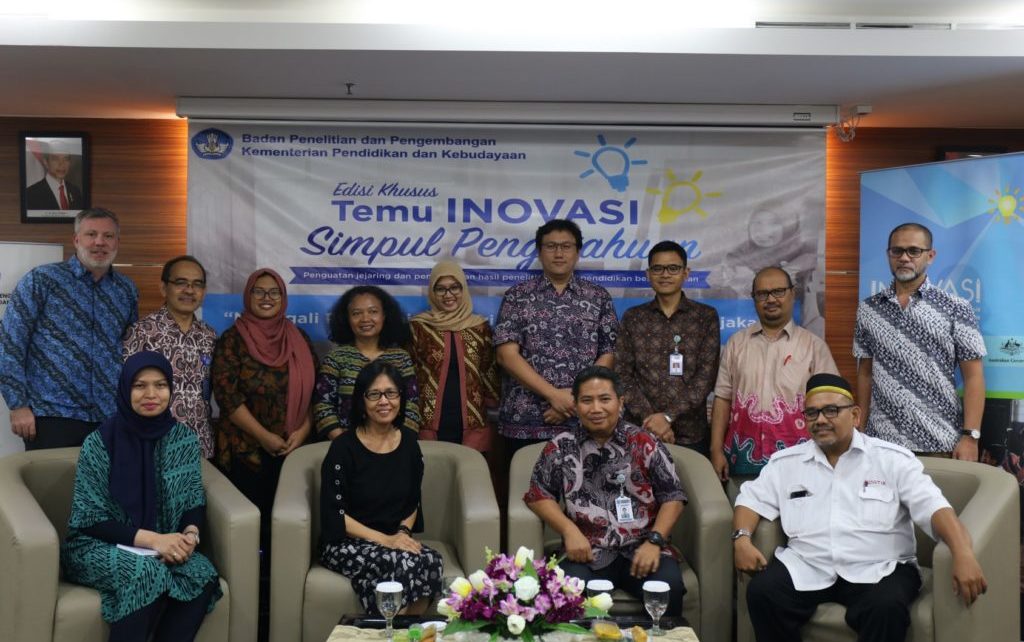Context: Over the years, the Indonesian government has been spending more money on education and there has been a huge increase in the student enrolment rate. Nonetheless, despite more youth attending school, international tests of students’ achievement reveal that Indonesian students’ achievement is relatively low, implying that they are not learning as effectively as they could. The main problem of the inefficient learning process of students is that many Indonesian teachers could perform better in terms of teaching standards and level of training. They often lack preparation and are poorly equipped, with limited resources for class. Indonesian teachers tend to mainly focus on explanation and descriptive teaching instead of allowing exploration through practical work or investigation processes. This creates a less effective learning environment for students. Because there is no one-size-fits-all approach to learning, it is important to explore new and adaptable methods to allow effective learning, particularly in the Indonesian classroom.
Implementation of programme/ initiative: Initiated in 2016, INOVASI (inovasi untuk anak sekolah Indonesia, or innovation for Indonesia’s school children) is a AUD 49 million programme funded by the Australian government in collaboration with the Indonesian government, in particular the Ministry of Education and Culture. The main objective of INOVASI is to investigate and explore means to allow for effective learning in the Indonesian education system. The programme is not designed to deliver education services. Instead, it serves as a platform to promote research and allow others to better understand the challenges and opportunities faced by Indonesians, while generating evidence in identifying effective ways of learning through tested strategies. This evidence is then shared with stakeholders and decision-makers, allowing them to carry out implementation and adaptation through informed choices. INOVASI also aims to identify changes in policies and practices that are necessary for sustainable and affordable interventions to improve and raise teaching quality and learning outcomes.
Main challenges: One of the main challenges is that, as the programme requires the use of technology, such as eBooks or computers, and since remote areas in the country might not have access to such technology, students in these settings are unable to fully benefit from the programme. Another challenge is that there is a lack of resources to ensure more comprehensive research, trial and execution of the programme and thus have greater impact.
Results achieved: There has been a significant increase in learning outcomes for schools participating in the INOVASI programme. Students of the schools participating in the programme have also attained better results which are recognized at the national level and this has been reported in the mass media. High performing teachers have also received awards for their achievements in supporting students’ development. Through the programme, relevant stakeholders meet more frequently to review research, discuss education issues and provide support on the programme’s strategies. Teachers’ associations and pedagogy departments have used the materials and evidence generated by INOVASI to promote and implement policies to improve the education system. Organizations have also incorporated this knowledge into their publications and used such information to construct new textbooks which are more beneficial in terms of education outcomes.
Moving Forward: For the next few years, INOVASI will focus on expanding its work in the selected 3 to 5 provinces outside of Jakarta, to ensure that information generated can be easily accessible to other national education stakeholders, tailoring to each province’s needs. INOVASI also aims to expand its coverage by working with other programmes and utilizing existing networks. Moving forward, INOVASI aims to hold annual conferences and meetings for key stakeholders to learn and incorporate evidence presented, hoping to increase relevant research that can contribute to improving the Indonesian education system.
Replicability: The unique part of the programme is that it is not mainly about delivering education services, rather, it focuses on research and understanding the challenges and opportunities faced in a particular country and environment. INOVASI provides decision makers with information and evidence concerning the problems faced, particularly in the Indonesian classroom, and allows them to make evidence-informed choices to contribute to enhanced outcomes. With that, they can then find the best solution and promote a better learning experience for Indonesian students. It is essential to realize that there is no one-size-fits-all approach and each initiative has to, through research and developing a clear understanding, be tailored according to the particular situation and problem. This emphasis on local conditions and a solid knowledge base is a useful point for other initiatives to learn from.
Acknowledgement:
This good practice was kindly prepared by Ms. Megan Sim Wan Qi.
References:
https://www.inovasi.or.id/en/
https://dfat.gov.au/about-us/publications/Documents/indonesia-inovasi-gender-equality-and-social-inclusion-strategy.pdf
https://dfat.gov.au/about-us/business-opportunities/Documents/inovasi-design-document.pdf
https://www.inovasi.or.id/en/story/the-transition-from-mother-tongue-challenges-and-opportunities/
Project Details
Date: January 3, 2020
